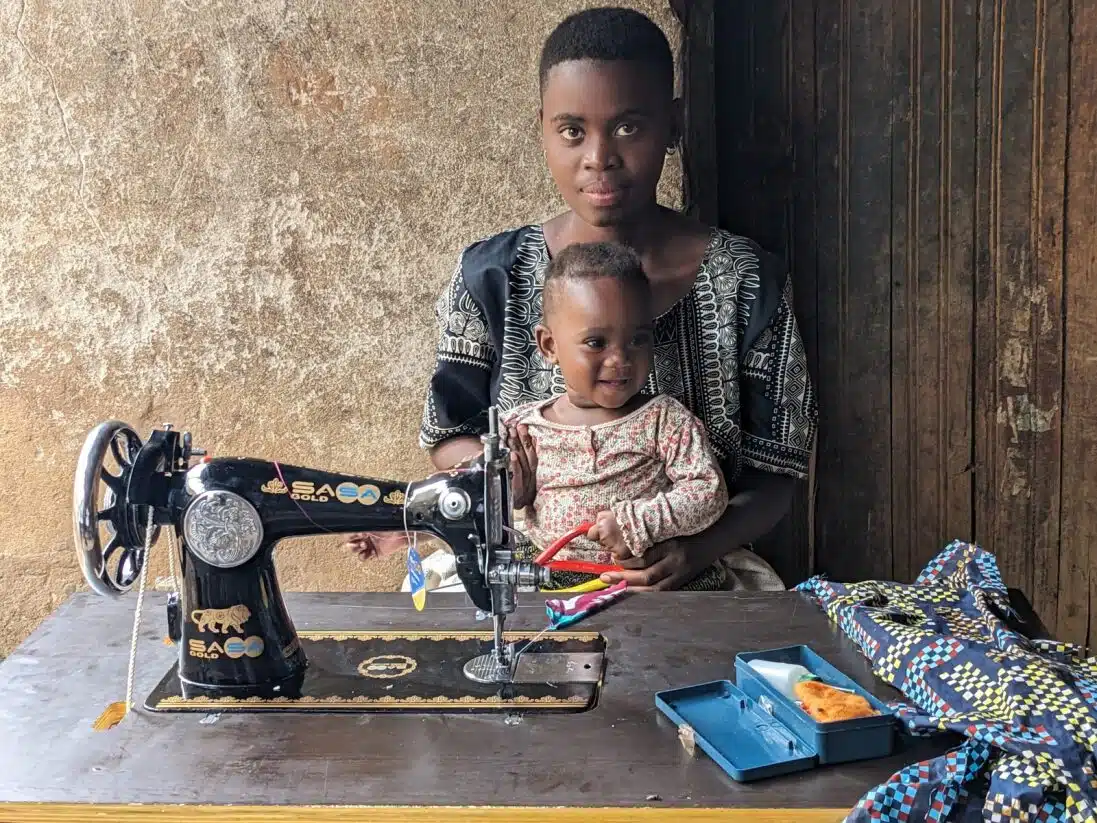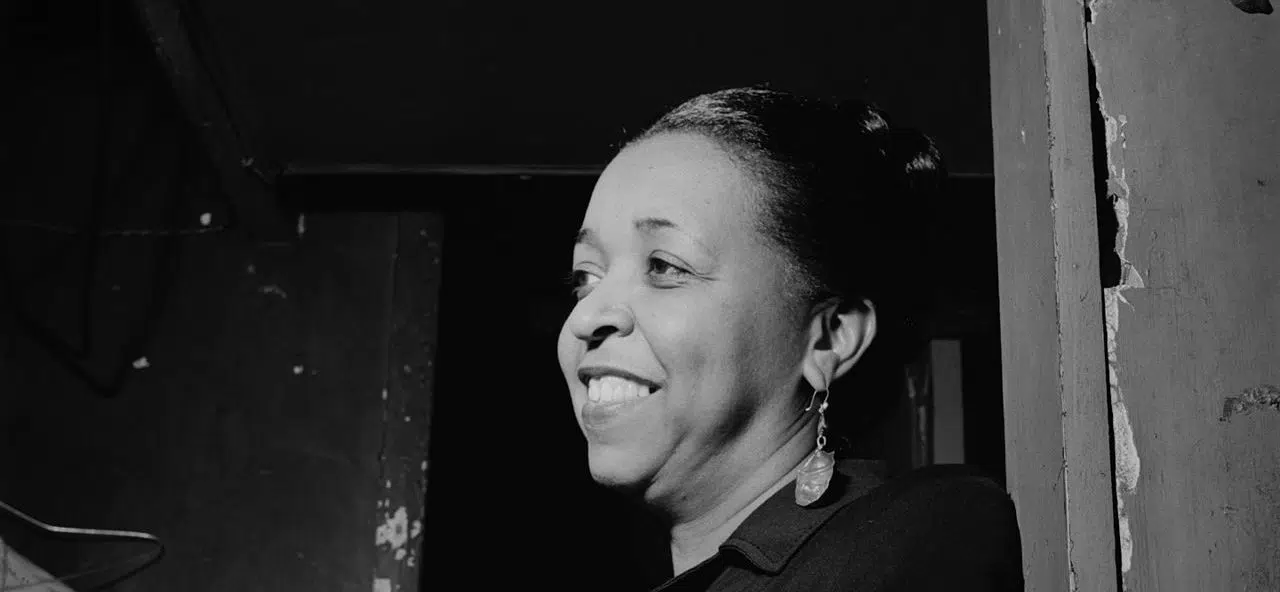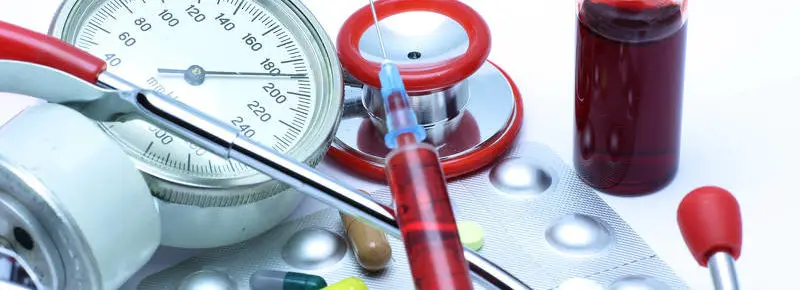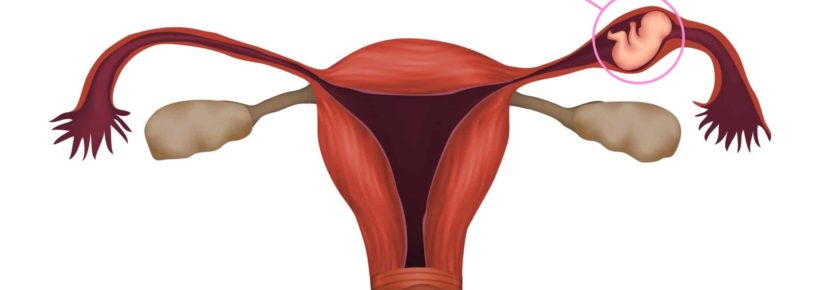Some people disclaim their natural heritage. I always name my origin. It didn’t hold me back and neither has my color. I was born in poverty. My father raped my mother when she was 12. Now they’ve named a park for me in Chester, Pennsylvania.
Renowned Gospel Singer Ethel Waters1
Since Roe vs. Wade was overturned in 2022, several states changed their abortion law. Currently, there are 20 states with abortion bans or limitations. 14 states have banned abortion.
Most of these state laws contain exceptions for abortion in cases of rape or incest. This raises an important question: Should we allow abortion after sexual violence, or should we ban abortion in cases of rape or incest?
From an ethical and logical standpoint, a baby conceived through violence is as blameless and innocent as one conceived in marriage and is therefore deserving of the same protection. If you challenge a person to look at two babies, one conceived in a loving marriage and the other through the violent act of rape, that person will not be able to tell them apart. Either all preborn babies are worth saving, or none of them are.
As the pro-abortion group “Religious” Coalition for Reproductive Choice (RCRC) says, “Opponents of abortion rights walk a fine line within their own movement when they condone any abortion. Based on their own definition, they are guilty of being accessories to ‘murder’ in certain circumstances by accepting rape and incest exceptions.”1
RCRC correctly points out that pro-lifers must never condone a single abortion and must never apologize for fighting rape and incest exceptions. If we allow that preborn lives are disposable for any reason, we set the life of the preborn below that of other human beings – and these “hard cases” are what started our nation and our world on the road to abortion on demand in the first place. If we had stood firm at the beginning, more than half a century ago, we would not be where we are today.
Related: WATCH: Exceptions for Rape and Incest?
Do Rape Abortion Exceptions Help the Victim?
As reformed abortionist Bernard Nathanson has so eloquently stated:
Rape is a heinous, ineradicably humiliating act of violence imposed upon a defenseless woman. The key word is ineradicable, for the destruction of the innocent human being created as a result of that act can never eradicate the unspeakable emotional and psychological residue of that rape. To the contrary, it can only compound the residue with another deadly act of violence.2
After a rape, the woman faces multiple hurdles and difficulties. Some of her biggest problems include dealing with trauma and self-image issues, worrying about how others may think of her and treat her, and, if she were to become pregnant, carrying the criminal’s child. Incest and rape survivors have always unjustly been victims of the “Scarlet Letter syndrome.” However, “treating” this problem of societal perspective with abortion further perpetuates the idea that the woman is a hopeless case or “damaged goods.”
While abortion may give the illusion of healing in the moment, this is not necessarily true in the long run. A survey conducted in 2000 revealed that 80% of the rape survivors surveyed who had chosen abortion said it was the wrong choice, and most said the abortion only increased their trauma rather than took away from it. Conversely none of the women who had given birth had regret or wished they had chosen abortion.

According to the Centers for Disease Control and Prevention, “More than four in five female rape survivors reported that they were first raped before age 25 and almost half were first raped as a minor (i.e., before age 18).” With this tragic reality, it’s understandable that some may feel that abortion is the most merciful option. But allowing abortion for cases of rape reinforces the social shame that rape survivors can feel.
As former rape counselor Sandra Mahkorn, M.D., says:
The central issue then should not be whether we can abortion all pregnant sexual assault victims, but rather an exploration of the things we can change in ourselves, and through community education, to support such women through their pregnancies. The “abortion is the best solution” approach can only serve to encourage the belief that sexual assault is something for which the victim must bear shame – a sin to be carefully concealed.3
What is more caring – to ignore the trauma of abortion and tell her to “just get rid of it” to “heal,” or to respect the innocent life within her and give her the real help and healing she needs?
In summary, the tragedy is the rape – not the child that is conceived. Contrary to what pro-abortionists believe, two injustices do not equal a right or a healed life. The horrific violation that the woman has suffered deserves justice – putting the criminal in jail and giving the woman the resources she needs to heal and move forward. Pregnancy lasts nine months, but the pain of the proposed abortion “remedy” lasts a lifetime.
Some may answer that the woman has a right to be free from assault. Of course, she does have a right to be free from sexual assault, as every person has that right. But in cases of rape, the assault has already happened. Just as the woman has a right to be free from violence, so does her preborn baby. Promoting abortion for rape under this argument is similar to saying that anyone else who is physically assaulted can find healing and peace by going out into the street and assaulting another person.
It is also incorrect to assume that all rape victims must want an abortion. Indeed, in a major study of pregnant rape victims, researchers found that 75-85% of the women chose not to abort their child. This brings the abortion exception for rape into question.
Additionally, studies have shown that many of those who abort their children after rape regret it. But among those who had given birth, none had reported regret and satisfaction was higher.
Research has also shown that it is common for women, after any abortion, to experience feelings of depression, guilt, feeling “dirty.” resenting men, and lower self-esteem. These are also common feelings after a sexual assault. Thus, abortion only adds to the pain and suffering of women who have been victims of rape.
How Many Abortions Due to Rape are There?
Since pro-abortionists and the corrupt media exclusively emphasize the “hard cases,” they have persuaded the public that the number of women obtaining abortions for rape is huge. A national Wirthlin poll found that the average respondent’s guess at the number of abortions committed for rape and incest was 21% of the total number of abortions in the United States.4
However, the actual number of abortions due to rape is actually miniscule. Six states have surveyed 2.44 million women over the time period 1996-2020 who had abortions and found that only 0.39% chose abortion because of rape or incest – that’s one out of every 250.5
Like all of the other abortion exceptions, the exception for abortion after rape is routinely abused by lying pro-abortionists, as the following stories show:
- Rebecca Chalker and Carol Downer admit in their A Woman’s Book of Choices, “Before abortion was legal, women sometimes got abortions by claiming that they had been raped.”6
- The Pennsylvania Abortion Control Act of 1988 required women who claimed to be victims of rape or incest to report their crimes before getting a free abortion from the state. The reporting of rapes jumped significantly the very first month the law was in effect, and police reported that many women admitted that they were reporting rapes just to get their free abortions.7
- Such lying seems to be second nature for people like Congresswoman Nita M. Lowey, who fought to get federal funding for abortions. She said, “I’d tell my constituents, ‘Send a letter. Say you were raped. Say it was incest. Say you have heart disease.'”8
- Naturally, women lying to obtain abortions is also common in other nations. Al Jazeera published a tearjerker story about Brazilian women who were “forced” to claim that they were raped so they could get abortions. Articles like this one from the corrupt media are typically low on details and high on emotional manipulation as they work to undermine pro-life laws in other nations.9
Lying about these facts makes it much more difficult for law enforcement agencies to find and prosecute real rapists and opens up the very real possibility of innocent men being prosecuted for rape.10
No matter how prevalent abortions due to rape are, children conceived in rape should not be punished for a crime that they are also victims of.
Despite the fact that rape-related abortions are the vast minority of overall abortions, this does not diminish the fact that assault is deeply traumatic. This is precisely why victims need true help and healing from their communities and loved ones.
Related: Find free support for families here!

Rape Protocol in Catholic Hospitals
Catholic health care professionals have developed a rape protocol that has been approved by the bishops. The doctor uses a simple test to determine if the victim has ovulated. If she has not ovulated, she is given a drug that prevents ovulation. If she has already ovulated, she is not given the drug because it may prevent implantation, thus starving a newly conceived baby.11
It is not enough to simply administer a pregnancy test in this situation. Pregnancy tests are not accurate very early in pregnancy. A woman could have a negative pregnancy test and still be pregnant (either from the assault or from a different, recent sexual act).
This “ovulation approach” protocol is based on the Ethical and Religious Directives for Catholic Health Care Services [¶36], which states:
A woman who has been raped may defend herself against conception resulting from sexual assault. If, after appropriate testing, there were no evidence that conception has occurred already, she may be treated with medications that would prevent ovulation, sperm capacitation, or fertilization. It is not permissible, however, to initiate or to recommend treatments that have as their purpose or direct effect the removal, destruction, or interference with the implantation of a fertilized ovum.
Catholic hospitals can only provide the morning-after pill if 4 conditions are met:
- There’s no chance she is pregnant;
- She has been sexually assaulted, which is the reason why she is there;
- The woman has not yet ovulated;
- The morning-after pill can reasonably be expected to prevent ovulation.
As the NCBC explains:
Appropriate care for rape victims should thus include efforts to assess whether a woman may have ovulated (and thus possibly conceived) by taking her menstrual history, doing an LH test, and performing any other tests or interventions which, in the judgment of the physician, help establish prudential certitude that emergency contraception, if it were provided to the victim, would properly function as a contraceptive and not as an abortifacient.
To provide the morning-after pill without considering a woman’s ovulatory state thus crosses an important moral line. In general, choosing to act in a way as to possibly cause the death of another human is not a good moral choice. When we have uncertainty about the presence of a human in the bushes during a hunting trip, for example, we ought not shoot into the bushes. By doing ovulation testing, on the other hand, we can begin to address the question of whether a human may be “hidden within,” and reasonably exclude the choice for a possible death-dealing effect of the drug.
In addition, the victim should receive continuing spiritual and psychological counseling and support to assist her in dealing with the trauma of the attack.
Summary
Abortion for rape victims can never be justified for several reasons.
- A child conceived in violence is himself innocent and created in the image of God. He has done nothing to deserve the death sentence, no more than a child conceived in a loving marriage.
- Abortion after rape wreaks more violence, provides no genuine healing, and leads others to believe that the “problems” caused by a rape have largely been solved. The solution to rape is not abortion, but prosecution of the rapist so he does not commit more crimes, and loving care for his victims so that they experience true physical and emotional healing.
- Finally, abortion for the “hard cases” such as rape is always used by pro-abortionists as a wedge to obtain abortion on demand. This has occurred in almost all of the developed nations and is now happening in many developing countries. If pro-lifers allow laws with a rape exception to be passed, they will soon be facing abortion on a massive scale.
This article was originally published in May 2021 by Dr. Brian Clowes and was most recently updated in August 2024 by Marisa Cantu, M.S.
+ Endnotes
[1] “Religious” Coalition for Abortion Rights (now the “Religious” Coalition for Reproductive Choice). Booklet entitled “Words of Choice” (Washington, D.C., 1991), page 24.
[2] Bernard Nathanson, M.D., statement to the Virginia State legislature, February 11, 1982.
[3] Rape counselor Sandra Mahkorn, M.D. “Pregnancy and Sexual Assault.” The Psychological Aspects of Abortion (Washington, D.C.: University Publications of America), 1979, pages 65 and 66.
[4] Results of a 1990 Wirthlin poll described in “The Week.” National Review, December 3, 1990, page 12.
[5] Tabulation of reports on “Induced Termination of Pregnancy” from Florida (1998-2020), Louisiana (1996-2018), Minnesota (1999-2019), Nebraska (2001-2019), South Dakota (1999-2019), and Utah (1996-2018).
[6] Rebecca Chalker and Carol Downer. A Woman’s Book of Choices: Abortion, Menstrual Extraction, RU-486 (New York City: Four Walls Eight Windows Press), 1992, page 39.
[7] Andrew Sheehan.”New Abortion Law Brings More Reports of Rape.” Pittsburgh Post-Gazette, June 25, 1988, page 5.
[8] Congresswoman Nita Lowey (D. NY), Chair of the House Reproductive Choice Caucus, on what to do when eligibility for abortion funding under the Hyde Amendment was expanded to include rape and incest in the Summer of 1992. Quoted in Michael Kramer. “Will Abortion be Covered?” Time Magazine, September 27, 1993, page 40.
[9] Jill Filipovic and Ana Siedschlag. “To Get an Abortion in Brazil, I Lied and Said I Was Raped.” Cosmopolitan, April 11, 2014. Azmat Khan. “Brazil’s Abortion Nightmare: Why One Desperate Woman Lied about Rape.” Al Jazeera, May 2, 2014.
[10] Ferris B. Lucas, Executive Director of the National Sheriff’s Association, has said:
We do, however, wish to comment on the provisions that would allow federal funds to be paid for abortions performed for treatment of rape or incest victims only. The wording would lead a person desirous of an abortion to make false reports to law enforcement agencies which would have to be checked and investigated to some length. These crimes are not easy ones to prove or disprove and resultantly require many man-hours of investigation. American law enforcement agencies are presently overburdened and do not have this vast amount of time available”
July 18, 1977, quoted by Congressman Thomas J. Bliley (R-Va.) in his July 25, 1983 testimony printed in the Congressional Record.
[11] “NCBC Statement on Connecticut Legislation Regarding Treatment for Victims of Sexual Assault.” National Catholic Bioethics Center website, October 3, 2007. For a more detailed treatment of this issue, see Father William Saunder’s article “Ethical Treatment after Rape.”









Thank you for this interesting article on your opinion! However, I’d just like to mention one point, which is how not aborting a fetus from a victim of rape can actually harm the child. I have personaly heard stories of people who grew up in households that did not want them as they were conceived under unplanned circumstances like rape or unprotected sex, and in these situations, the children are often treated quite poorly by their parents, getting verbally abused their entire childhoods, getting told things like “I didn’t want you in the first place” or “you ruined my life”. Getting told things like these on a regular basis as well as having to live with the fact that you are a result of such a violent, horrendous act can be extremely straining and damaging to anyone’s mental health, especially a child’s. On top of that, the mother in a situation like this cannot always afford to raise the child, herefore meaning if she didn’t abort the pregnancy the child would have a difficult childhood and potentially life, living in poverty or otherwise bad conditions.
Just something to consider!
Eva, you raise some important concerns, but we differ in the remedy. We cannot counter one act of violence with another. Rather than kill the child (abortion is often a pain causing procedure as he is injected with saline solution or pulled apart limb by limb out of his mother’s womb), how about we instead offer our support to the mother in the areas where she needs help if she wishes to raise her child or assist with placing the child in a loving family through adoption if she cannot? Where does your argument stop? If any child is being raised in circumstances similar to what you describe, is it “okay” to end his life at 3 years, 7 years, or 12 years old, so he won’t live in poverty or suffer bad conditions? I think we can agree that it’s not and that there are better solutions.
Will Supreme Court decide death sentence for victims of rape?
In one state only, Oklahoma… a person convicted of rape can receive a prison sentence or the death penalty under certain circumstances. Depending on the assault of rape, five years in prison to death or one to 15 years in prison. In all other states, a person charged with rape receives various prison sentences, perhaps as little as one year.
However, many states are now constituting strict new abortion laws. A look in today’s reality of innocent teenagers, young women who had been raped, perhaps gang-raped. or incest. In all, but one State, murder, homicide have been excluded as capitol punishment. Being now the victim of rape, women will now possibly face a death sentence, capital punishment for having an abortion, if it were not for a rapist, who sits in jail. His punishment for rape.
14th Amendment.
“…No State shall make or enforce any law which shall abridge the privileges or immunities of citizens of the United States; nor shall any State deprive any person of life, liberty, or property, without due process of law: nor deny to any person within its jurisdiction the equal protection of the laws.”
“.. privileges or immunities of citizens of the United States….the equal protection of the laws.”
Equal protection (Bolling v. Sharpe 1954)
June 7th 1965. U.S. Supreme Court decides Griswold v. Connecticut, recognizing constitutional protection for right of privacy in decisions about giving birth and using contraception.
Jan. 22, 1973 U.S. Supreme Court decides Roe v. wade, upholding federal constitutional protection for a women’s right to decide whether or not to have an abortion.
Jun2 29, 1992 U.S. Supreme Court decides Planned Parenthood v. Casey, upholding constitutional protection of a women’s right of choice.
The United States passed the federal law The Violence Against Women Act of 1994 (Title IV, sec. 40001-40703 of the Violent Crime Control and Law Enforcement Act of 1994) on September 13, 1994. The VAWA act created the Department’s Office on Violence Against Women to support a permanent federal response to violence against women.
William Heino Sr.
Until 1853 the universal Christian position on contraception was virtually uniform across all sects. No act or neglect that could interfere with conception and childbirth was acceptable. If sexual intercourse took place, it had to be natural, with no measures taken that might impede procreation.
This was one of the condemnations of the Manichean gnostics: that they taught novices who were not ready to give up sexual intercourse how to schedule intercourse to avoid the fertile days of a woman’s cycle.
In 1853 the Roman Catholic Church first allowed scheduled abstinence to avoid conception and subsequent childbirth. This was to be suggested only to habitual Onanists as a “less immoral” mortal sin than Onanism (coitus interruptus).
The Protestant Episcopal Church of England held out until 1930, then totally collapsed in the face of the birth controllers.
“Either all preborn babies are worth saving, or none of them are.“ I want t o let you know that I posted this quote on a political forum without giving any credit to you or your website, because it is my heartfelt belief.
“Either all preborn babies are worth saving, or none of them are.” I love this. It is so true. May the Lord above bless you in many ways. You speak truth!
Care to explain how birth control is an abomination?
What would be a suggestion for if a victim is raped, and gets impregnated? Also, is having a strong community a good thing to have in the healing process of the victim? What are some arguments made by pro-choice group and what are the best counter arguments against them?
Thank you for taking the time to read and respond, and for sharing your experience. We grieve the trauma that occurred to you and admire your courage through great difficulties. With all humility we give thanks for allowing us to explain negative effects of the birth control pill. The taking of the Pill is not without real health risks to women, and its failure rate is a major contributor to a number of unintended pregnancies, especially among younger women, who evidence shows do not always take it with consistency. In addition, all birth control pills on the market today function as abortifacients part of the time, by preventing implantation of a developing human being in the uterus. When this happens, the Pill causes a “silent abortion.” Our hope is that a woman facing an unplanned pregnancy for whatever reason will be encouraged by your strength, and, whether she chooses adoption or raising her child as you have your twins, she will have hope and be glad.
Hi. Before I became a mother, very young, I wanted to join the military for life. I even wanted to be on the front lines, if needed. I do, at times, regret that I never got to do so. Do I feel like my life got ruined, due to date rape? At times, yes. Also, no. I was in my teens when my twins were born. The father wanted me to have an abortion because he didn’t want to take responsibility for his actions. I kept my children, finished high school, and went on to school. I now work in Healthcare. No, none of it was easy. One suggestion I have for all the young girls out there, is birth control. My belief is that it could even prevent pregnancy in some of the worst case scenarios, such as rape and incest. As for the women and infants/fetuses that may not survive pregnancy or childbirth, due to complications and underlying health problems, my suggestion is advocate for your own health. Get the answers you need before ever considering having children.
In my case giving birth did almost cost me my life, as well as the twins. Thankfully, we did all make it through it, but I was told never to have anymore children because of the risk of blood loss. By the age of 20, I had to have a total hysterectomy because it was medically necessary. Needless to say, I was glad I had my twins.
I agree, it does last a life time and also for the child. I’m thankful my mother never aborted me, even though she was a victim of date rape. But I can honestly say, my mother loved me like a loving mother should and she never held anything against me.
Chloe, thank you for your question. We would refer you to our answer to K. Vandam. We would also add that rape/incest victims while they do exist, are a very, very small percentage of abortions. The pro-abortion side uses this argument to tug at one’s heartstrings. What they do not say is that almost all abortions are for convenience, and that if rape/incest is involved, there are many cases of women who bring these children to term and it brings healing. Good can come out of evil, and killing a child is never a solution, because of the trauma this alone would inflict on the women (see below) in addition to the rape and incest. And she should absolutely be under counseling. We hope this helps. You can also look for “post-abortion syndrome” online and you will see a multiplicity of resources that talk about its bad effects. Again, the pro-abortion side claims it doesn’t exist. We know this is a lie; they are not asking all the post-abortive women or the authors of studies that document these terrible effects.
Abortion and birth control are an abomination and should be illegal in any and all circumstances. It’s a shame our society has come to accept these things.
I am also doing some research on abortion for an argumentative essay at school. I was recently having a discussion over abortion with some of my friends, and they all thought that abortion should be allowed do to rape and or insest. They also said well it’s her body her choice. Well how do I explain to them that by choosing abortion, they are not making a decision for only their body, but for the little baby’s body inside of them?
Karyanne, thank you for sharing your thoughts. Let us say how sad we are for your friend’s loss. Regarding her rape and subsequent suicide, she should have been under psychiatric counseling for the rape; do you know if she was? This trauma needs to be dealt with all the tools we have, to help her through this difficult time. Even if your friend were not pregnant, following the rape she would naturally have been suffering and could also taken her life. We would still not recommend that any child in utero be aborted, because the killing will not help her trauma. In fact, that would actually add to her risk factors – post-abortive women have significantly higher risks for both depression and suicide. Both woman and child really need all the help and love we as a Church and Christian can give them. God bless.
Pro-Do-What-You-Have-To/Pro-It’s-My-Body-Not-Yours.
I’ve doing some research on abortion for an argumenative essay I’m writing for school, about whether or not abortions should be legal. Ove time I’d considered myself Pro-Choice, but after having read through severl articles, comments, and blogs, I’ve changed my mind. A womans body is her body, not mine or yours. She should be allowed the right to chose how she uses it and what she does with it. If she decides to get an abortion, that is her desision.
When I was in middle school, my best friend was raped, and got pregnant. She was 12 years old. Her parents, being Pro-Life, forced her to carry out the pregancy. After one month of pregnancy, my friend commited suicide. Her parents, now Pro-Choice, blame it on themselves, for not letting her decide.
It’s ok to be Pro-Life, as pregnacy is a beautiful thing, this being said, being Pro-Choice is also ok. People fighting over a womans body is wrong. So as of August 2019, I am officialy Pro-Womans-Desion. If you want get an abortion, thats fine, just be smart about it. If you think abortions are wrong, thats fine, too, just don’t push your ideas onto other people. Mama always said if you don’t have anything nice to say, say something else. This world has enough negativity as it is.
Thank you for your perspectives on the subject!
Carol, thank you so much for sharing your powerful insights. We hope other women reading them will find courage and strength in your hopeful words!
Thank you for publishing answers to the “hard cases.” I am a midwife and have dealt with many pregnant women who had previously been traumatized by incest, rape and by abortion. In my admittedly small sample of personal experience, no woman expressed abortion as free of trauma. The ones who had formerly had abortions expressed a great deal of flashback grief over their abortions, particularly when their current baby was at the same gestation as their aborted baby. These women also often became highly emotional at birth. Their labors often stalled while they grieved and shared, in what they considered a supportive, safe space, about their former abortion experiences. The ones who had given birth to a baby from rape expressed that either pouring out love to their new baby or imagining the baby with loving adoptive parents was a source of healing. In all cases, giving birth to a live baby, whether from rape or a post-abortion pregnancy, ultimately brought comfort to these mothers. As a midwife, my goal was to acknowledge the prior abortions for what they were, but to reflect God’s love, forgiveness and healing.
John, thank you for your thoughtful comments. While we understand your point, it is perhaps worth mentioning that while a woman suffers trauma obviously during a rape, there is also trauma during an abortion. Moreover, during the latter, there is both physical and emotional trauma. In ending the life of the child, depending on the gestational age, the baby is either suctioned out of the uterus, dismembered (and feels terrible pain) or the heart is stopped, brain suctioned out and baby delivered dead. Because of the unavoidable emotional tie between woman and child, there is no way she cannot be impacted. The understanding is it often takes on average several years before the woman feels the full impact of abortion, from increased guilt, risk of suicide, drug use, perforated uterus, all kinds of things that can happen. The mother is much better off physically and emotionally long-term in delivering the child and offering him/her for adoption. There are also many who do counseling to help women during these times. Our answer is that, when caught, would you kill the rapist, dismember him, stop his heart? No. Why do so to the baby, when it harms the mother more than many of them know?
are you actually saying that childbirth isn’t traumatic for women who don’t want it, and even some women who do? For some, it’s the best part of their life – but not all, and that’s just not being respected.
I think in the case of rape , the morning after pill should be administered IMMEDIATELY rather than allowing a pregnancy to occur.
Thanks for allowing us to explain the Catholic position. Would you sentence the rapist to death for rape? Or to death by dismemberment? For this is what happens to a child conceived in innocence, through no fault of his/her own. Carrying the baby actually has fewer health risks for the mother, and the baby may be given up for adoption. Whereas women who have abortions suffer many consequences, many of them psychiatric, from guilt to increased risk of suicide. Here is a good response by Dr. Bernard Nathanson, who was not a Christian and co-founded NARAL. After ultrasound was developed, he stopped, having aborted many thousands. https://www.youtube.com/watch?v=61V_XfK1tu0
I’m sorry but there is absolutely no correlation to this argument. This is a weak and flawed argument.
my argument is that it should be a choice for the victim. I’m not a psychiatrist nor am I a woman but I can understand if a woman has resentment toward the unborn child. Sure not everyone will have those feelings, but I couldn’t imagine growing up in a household filled with hate and resentment. Then you hear about stories like,” I grew in a house that emotionally abused me and I got out, they could too.” you don’t hear about the people that don’t make it out. The ones that live a life of suffering and possibly terminate their own lives. It’s a sad, cruel world we live in and I wish it doesn’t have to be the way it is. I guess my point is that not everyone is the same and the situation that they are going through is different than your own or anyone else’s for that matter. So the choice should be an option if it is the best-case scenario for a long happy life for both parties. I’m not here to hate your view or to say that you are wrong but just to give you a different view.
Neha, why would one punish the child instead of the rapist? And would you advocate that once caught, the rapist should be dismembered limb by limb and killed? Of course not, but that is what you would subject an innocent child to, conceived innocently in rape. Once conceived, this life is just as valuable as anyone else’s.
Also, are you not aware of the trauma that an abortion inflicts on the mother? We believe very much in helping both the mother and child. There is a very long list, from increased risk of suicide and drug use to guilt to increased risk of breast cancer for the mother. We know this from many years of experience of working all over the world with post-abortive women and from scientific data that the pro-abortion side simply ignores. Telling the woman that her rape with “go away” with an abortion is only making her problems go much deeper and exposes her to greater physical and psychiatric risks. She should absolutely get help; if she does not know whom to contact, every Catholic diocese in the world works with mothers in these situations and can help even with medical costs, adoption, etc. #lovethemboth
If we allow abortions for rape and incest then maybe we need to “abort” old folks who can no longer “contribute” to society.
Hmmm. I just thought… we are all terminal so lets just find a reason to slaughter everyone “we” deem to not be worthy.
Abortionists say an unborn fetus could not survive on its own, so it is Ok to terminate. I understand, so lets take a full term newborn and take it out into a field just a hundred feet from your back door, and leave it til the following week???? Think it will still be there… I doubt it will still be there.
One injustice plus a forced birth guarantee an unhealed and trauma-ridden life. Whether the child gets a park named after them has nothing to do with the lifelong trauma that the carrying, birth, and raising of the fetus cause to victims of rape.
The rapist’s “loving care” for the rape victim that you think can only supposedly happen after the rape victim is forced to give birth to the violently implanted fetus is not what gives rape victims “true physical and emotional healing”.
The rhetoric in this article is so bigoted, it’s unbelievable.
“One injustice plus a forced birth guarantee an unhealed and trauma-ridden life. Whether the child gets a park named after them has nothing to do with the lifelong trauma that the carrying, birth, and raising of the fetus cause to victims of rape.”
“…forced birth…”
No such thing. Birth is not forced in any reasonable sense. Birth is a natural process. Birth occurs due to biology.
“…guarantee an unhealed and trauma-ridden life.”
Not at all. HLI and other organizations that oppose the murder of unborn human beings have many individual cases on record of mothers who conceived following rape who express gratitude for having been guided to choose life rather than death. People who were conceived due to rape have also expressed thanks for life, for being preserved from the abortionist.
“…unhealed and trauma-ridden life.” Who can know how a person’s life will turn out? Statements such as this are “skunk charges” tossed out to distract people from the true issue: Choose Life; or choose death.
Every one of us is descended from ancestors who were raped, and who were rapists. Does that invalidate us now?
That an unborn human being is “violently” implanted in the endometrium (lining of the womb) is based upon the discredited “homunculus” theory. Following Leeuwenhoek’s discovery of sperm cells, it was imagined that the sperm is a complete human organism contained within the head of the sperm cell. As the ovum was not discovered until much later, it was thought that a sperm was like a vegetable seed, implanted into the endometrium as a seed is planted in the soil.
After the ovum was discovered, and sperms were viewed festooning the ovum, it was realized that the sperm fertilized the ovum, generating a new individual.
Once fertilized, the ovule, itself passively incapable of self-movement, is carried by the cilia that line the fallopian tube to the womb. It then attaches to the endometrium wherever it lands. This hardly qualifies as violence as the endometrium attaches to the embryo as much as the embryo attaches to the endometrium.
Insemination by rape is identical to insemination by consent. One is no more violent than the other. Other acts associated with insemination by a rapist may be violent, but not the insemination itself.
So your solution to a violent act is to commit another? Weird take.
`abortion is the best solution’ approach can only serve to encourage the belief that sexual assault is something for which the victim must bear shame ― a sin to be carefully concealed.”4`IThe greatest pain of the first injustice lasts nine months, but the pain of the abortion `remedy’ lasts a lifetime.
Great article! However I don’t completely agree with the above two sentences . Rape victims don’t necessarily think of “sin to be carefully concealed ” in that moment and their pain of been raped lasts for a lifetime…
Agreed! I was raped and to this day, I need special care when going to an OBGYN. This is a lifelong trauma, and thankfully I did not get pregnant from that rape! If I did, I think I would have an abortion. I would not want to carry around a child, and potentially die from childbirth, just so i can share custody with a man who attacked me. Some states allow the rapist to have custody or shared custody with that child of rape. How is that not a lifetime of trauma for the victim? Not to mention that child who grows up with a rapist as a father, AND knows that they were not created from love, but from violence!
when was this issued ? date?
Thank you for your interest. The article was published on our website May 19, 2017.